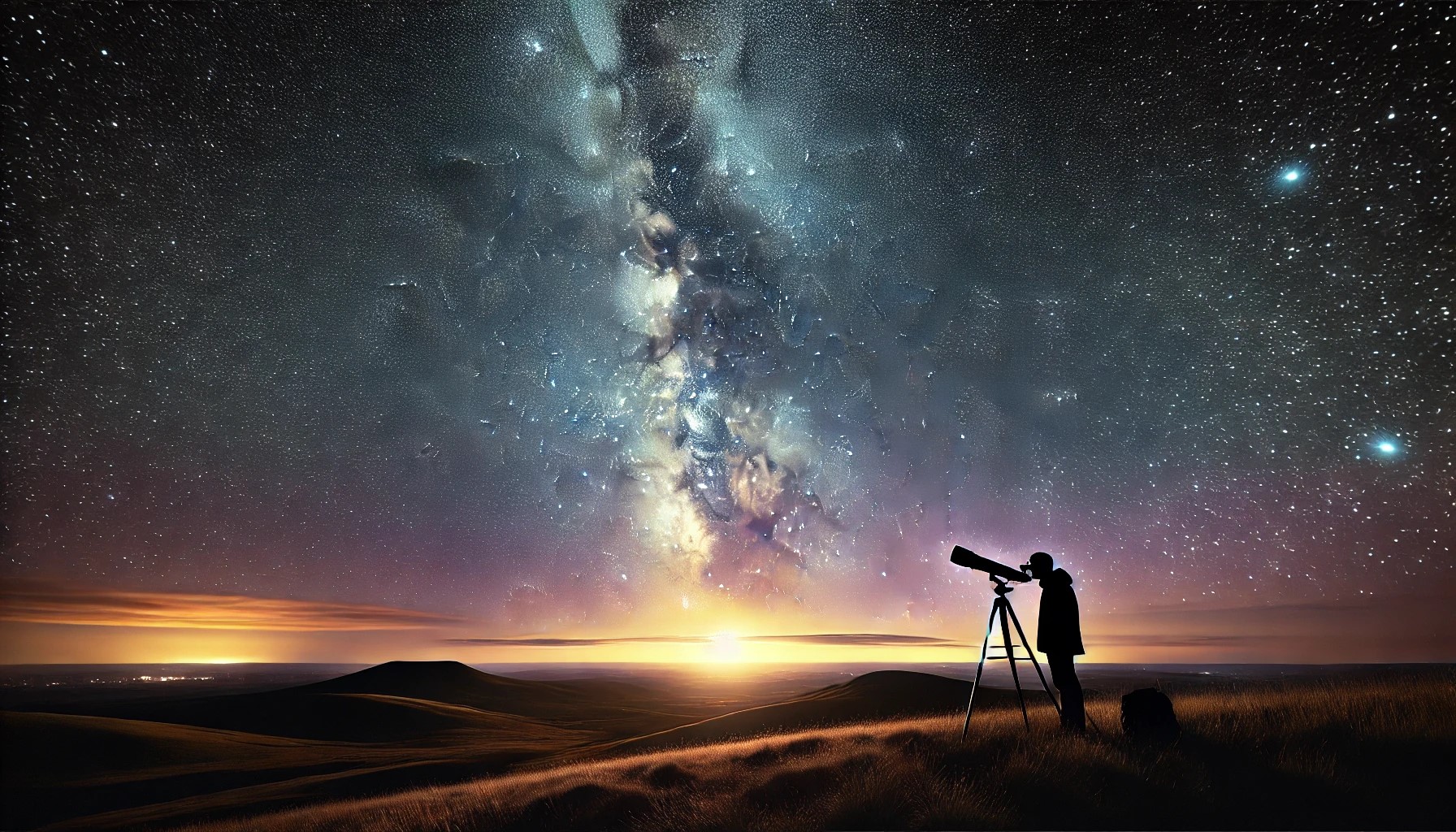A clear night sky filled with stars is a sight that never fails to impress. The UK has several locations where light pollution is low, making them perfect for stargazing. Whether you’re an amateur astronomer or simply want to admire the Milky Way, these spots offer some of the best conditions for viewing the cosmos.
1. Galloway Forest Park, Scotland
Galloway Forest Park was the first designated Dark Sky Park in the UK. With minimal light pollution, visitors can see thousands of stars, the Milky Way, and even the Andromeda Galaxy. There are three visitor centers—Kirroughtree, Clatteringshaws, and Glentrool—offering ideal spots to set up telescopes. On particularly clear nights, the Northern Lights may even make an appearance.
2. Brecon Beacons National Park, Wales
The Brecon Beacons National Park is recognized as an International Dark Sky Reserve, making it one of the best places to see the stars in Wales. The Usk Reservoir and National Park Visitor Centre are excellent locations for uninterrupted night sky views. The high altitude and lack of artificial lighting allow for incredible visibility of deep-sky objects, including nebulae and star clusters.
3. Exmoor National Park, England
Exmoor National Park was Europe’s first International Dark Sky Reserve. On a cloudless night, visitors can see the Milky Way stretching across the sky. Locations such as Holdstone Hill, Webber’s Post, and Brendon Two Gates provide excellent vantage points. The park hosts regular stargazing events, perfect for those interested in learning more about constellations and celestial movements.
4. Northumberland National Park & Kielder Observatory, England
Northumberland National Park, along with Kielder Water & Forest Park, forms the largest protected dark sky area in Europe. The Kielder Observatory hosts events where experts guide visitors through telescope observations. The region is known for exceptionally dark skies, offering breathtaking views of distant galaxies and planets.
5. Snowdonia National Park, Wales
Snowdonia National Park provides clear skies and high vantage points, making it a fantastic place for stargazing. Locations such as Llyn Geirionydd and Llynnau Cregennen offer unobstructed views. The remote setting and elevation help reduce atmospheric interference, allowing for sharp views of celestial objects.
6. South Downs National Park, England
South Downs National Park is the only International Dark Sky Reserve in the southeast of England. With areas like Old Winchester Hill and Devil’s Dyke, stargazers can enjoy excellent night sky conditions. The park’s commitment to reducing light pollution has made it a favorite among amateur astronomers.
7. Isle of Coll, Scotland
The Isle of Coll is one of Scotland’s few Dark Sky Islands. With no streetlights and limited human-made illumination, the island provides near-perfect conditions for stargazing. The Coll & The Cosmos initiative hosts events where visitors can learn about astronomy while enjoying spectacular night skies.
8. The Yorkshire Dales, England
The Yorkshire Dales offer several designated Dark Sky Discovery Sites, including Malham National Park Visitor Centre and Tan Hill Inn, the highest pub in the UK. These locations provide excellent conditions for observing planets, shooting stars, and meteor showers.
9. The Isle of Sark, Channel Islands
Sark is one of the world’s first Dark Sky Islands, meaning it has no cars or streetlights to interfere with astronomical observations. The island’s commitment to preserving its natural darkness makes it a perfect location to view celestial events such as lunar eclipses and meteor showers.
10. Cairngorms National Park, Scotland
Cairngorms National Park is home to some of the darkest skies in the UK. Areas such as Tomintoul and Glenlivet offer panoramic views of the cosmos. The park’s remote nature and high-altitude terrain enhance visibility, making it an excellent choice for astrophotography.
Best Times for Stargazing in the UK
- Winter months (November–February): Longer nights and crisp air improve visibility.
- New Moon phases: Less moonlight enhances the brightness of distant stars and galaxies.
- Meteor showers: Annual events like the Perseids (August) and Geminids (December) provide dazzling celestial displays.
Tips for a Great Stargazing Experience
- Check the weather forecast: Clear skies are essential.
- Dress warmly: Even summer nights can get cold.
- Use a red flashlight: This helps preserve night vision.
- Bring binoculars or a telescope: These enhance views of deep-sky objects.
- Allow your eyes to adjust: It takes about 20 minutes to fully adapt to darkness.
These locations offer some of the most spectacular night sky views in the UK. Whether visiting a national park, a remote island, or an observatory, the experience of seeing countless stars in the night sky is always worth the trip.
